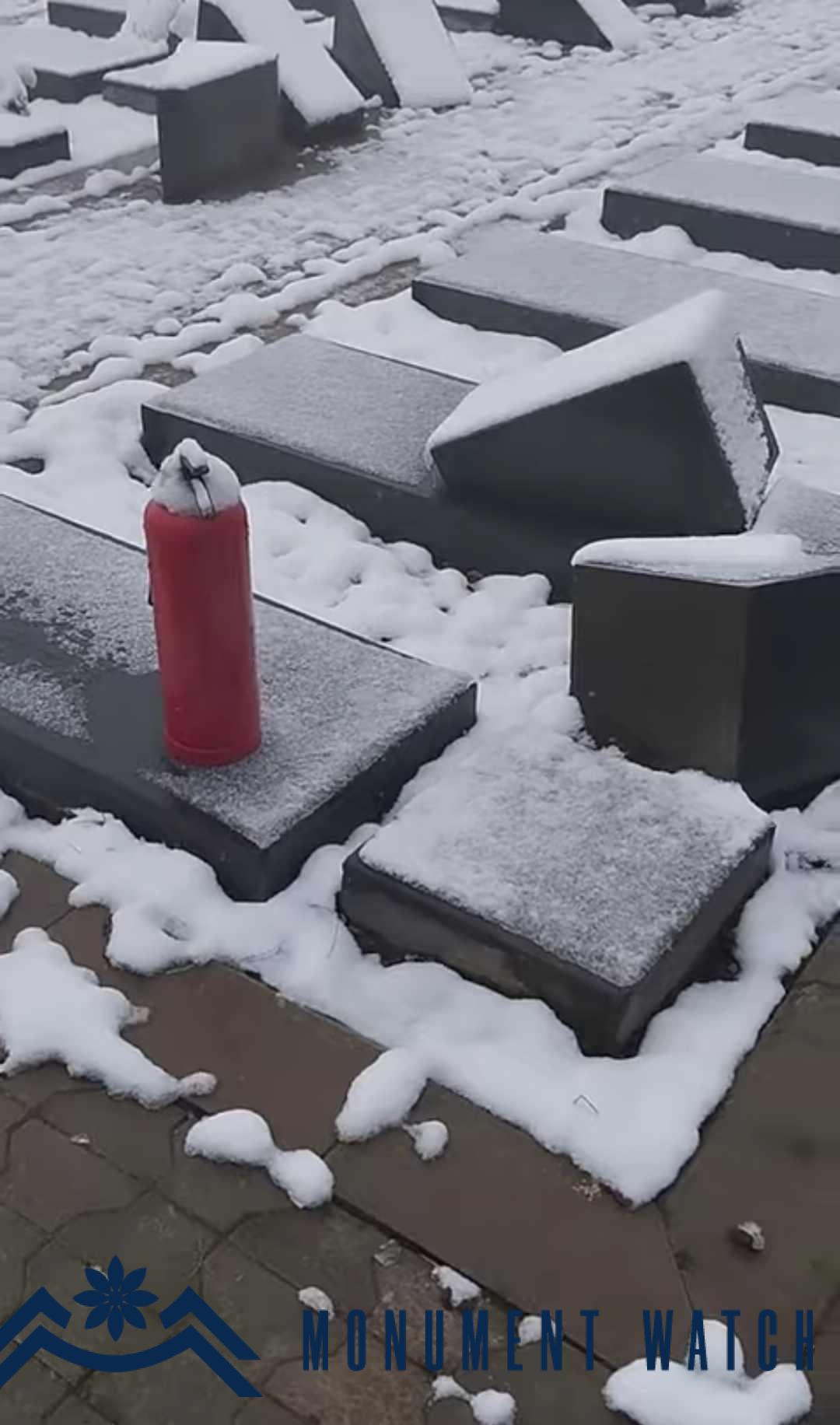Azerbaijan has vandalized the fraternal (military) cemetery in the village of Haterk in Artsakh
On January 15, 2024, a video was posted on the Azerbaijani Milli TV YouTube channel, depicting scenes from the occupied Haterk village in Artsakh. The footage focuses on the memorial built to honor the victims of the Artsakh war and the adjacent area.
The video reveals the aftermath of the first Artsakh war, showcasing vandalism inflicted upon the memorial complex and the surrounding cemetery. Notably, numerous commemorative stones featuring portraits of the defenders of Haterk village, along with certain tombstones, were found overturned. The footage, captured by Azerbaijanis engaged in work near the memorial, also highlights the placement of working tools and a gas cylinder on the memorial stones (https://www.youtube.com/watch?v=JButw96OfLk).
Haterk village endured significant hardships during the years of the first Artsakh war. In 1992, the armed forces of Azerbaijan made attempts to depopulate and devastate the village. Unfortunately, during the periods of 1992-1993, Haterk village fell under Azerbaijani occupation twice. Tragically, 19 civilians from Haterk, who were unable to evacuate during the Azerbaijani invasion, lost their lives at the hands of the Azerbaijani military. A total of 57 individuals lost their lives during the battles for the self-defense and liberation of the village. The construction of the memorial, dedicated to the memory of these victims and situated at the fraternal headquarters, commenced in 2002 and concluded in 2005.
Our response
According to Article 4 of the 1954 Hague Convention on the Protection of Cultural Property in the Event of Armed Conflict, any acts of vandalism, theft, robbery, embezzlement, as well as enmity and revenge against cultural heritage are expressly prohibited. Additionally, as outlined in the first Protocol of the 1954 Hague Convention, it is forbidden to destroy cultural or spiritual values in territories that are under occupation. The second Protocol of 1999 to The Hague Convention reaffirms this obligation, designating such acts as international crimes under Article 15. The destruction of cultural values is additionally prohibited by the National legislation of August 12, 1949, as well as by various United Nations International Conventions, Treaties, and Human Rights Agreements related to the conduct of warfare.
